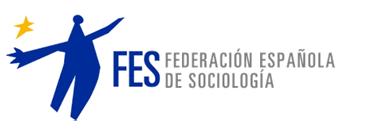La cultura de la cancelación: desafíos legales y políticas públicas en la era digital
DOI:
https://doi.org/10.24197/st.1.2025.154-175Palabras clave:
Cancel Culture, Law, Public Policy, Challenges, Digital AgeResumen
Este artículo habla sobre la cultura de la cancelación y los desafíos legales y de políticas públicas en la era digital. Esta investigación utiliza métodos cualitativos y estudios de documentos legales mediante la recopilación y el análisis de documentos relevantes, como regulaciones legales, políticas públicas o declaraciones legales relacionadas con la cultura de la cancelación. Analizar el fenómeno de la cultura de la cancelación con tres enfoques: Liberales Continentales, Economía Austriaca, Enfoques Nuevo-Institucionales. El sistema jurídico habla de aspectos de la estructura jurídica, la sustancia jurídica y la cultura jurídica. Los resultados de este estudio revelaron que la cultura de la cancelación describe una práctica social en la que los individuos son castigados masivamente por los internautas a través de los medios virtuales por palabras y acciones que se consideran controvertidas. Estas son algunas figuras públicas que han experimentado la cultura de la cancelación, como Ahmad Dhani, Luna Maya, Gisel Anastasya, Rizki Billar, Tuan Guru Mizan Qudsiyah y Panji Gumilang. En caso de que la cultura de la cancelación cause daño reputacional y viole los derechos constitucionales por lo que puede demandar a los responsables de la restauración de la reputación y las pérdidas sufridas. Como desafío político, la cultura de la cancelación requiere una política afirmativa que analice la presión de los internautas y su poder viral en la construcción de la colaboración entre los gobiernos, las plataformas de redes sociales, la sociedad civil y las personas para proteger las diferencias y la libertad de expresión.
Descargas
Referencias
Adiyanta, F. C. S. (2019). Law and Empirical Research Studies: The Use of Survey Methods as An Instrument of Empirical Legal Research. Administrative Law and Governance Journal. https://ejournal2.undip.ac.id/index.php/alj/article/view/6604
Anderson-Lopez, J. (2021). Tug of War: Social Media, Cancel Culture, And Diversity For Girls and The 100. In Kome (Vol. 9, Issue 1, pp. 64–84).
Armia, M. S. (2022). Determination of Legal Research Approach Methods. repository.ar-raniry.ac.id. https://repository.ar-raniry.ac.id/id/eprint/22862/
Benuf, K., &; Azhar, M. (2020). Legal Research Methodology as An Instrument to Unravel Contemporary Legal Problems. Echoes of Justice. https://ejournal2.undip.ac.id/index.php/gk/article/view/7504
Bouvier, G. (2020). Racist Call-Outs and Cancel Culture on Twitter: The Limitations of The Platform's Ability To Define Issues Of Social Justice. In Discourse, Context and Media (Vol. 38).
Bromell, D. (2022). Regulating Free Speech in a Digital Age: Hate, Harm and the Limits of Censorship. In Regulating Free Speech in a Digital Age: Hate, Harm and the Limits of Censorship (pp. 1–229).
Cammaerts, B. (2022). The Abnormalization of Social Justice: The 'Anti-Woke Culture War' Discourse in the UK. In Discourse and Society (Vol. 33, Issue 6, pp. 730–743).
Demsar, V. (2023). Calling for Cancellation: Understanding how Markets Are Shaped to Realign with Prevailing Societal Values. In Journal of Macromarketing (Vol. 43, Issue 3, pp. 322–350).
Erker, J. J. (2022). A Cancel Culture Corpus Through the Lens of Natural Language Processing. In Proceedings of the Language Resources and Evaluation Conference, LREC 2022 Workshop on Language Technology and Resources for a Fair, Inclusive, and Safe Society, Lateraisse 2022 (pp. 17–25).
Gomez-Mejia, G. (2020). "Fail, Clickbait, Cringe, Cancel, Woke": Vernacular Criticisms of Digital Advertising in Social Media Platforms. In Lecture Notes in Computer Science (including subseries Lecture Notes in Artificial Intelligence and Lecture Notes in Bioinformatics) (Vol. 12195, pp. 309–324).
Aaron, R. R., Sahid, M. M., &; Yamin, B. (2023). Problems of Criminal Applications Law in The Life of Indonesian Communities and Cultures. IUS Journal of Legal Studies https://jurnalius.ac.id/ojs/index.php/jurnalIUS/article/view/1144
Kanai, T. (2021). Cancellation of the calcification in cultured osteoblasts by CLEC-2. In Journal of Hard Tissue Biology (Vol. 30, Issue 1, pp. 53–62).
Lewis, R. (2022a). Drama platform: "Cancel culture," Celebrity, And the Struggle for Accountability on YouTube. In New Media and Society (Vol. 24, Issue 7, pp. 1632–1656).
Lewis, R. (2022b). Drama Platform: "Cancel Culture," Celebrity, And the Struggle for Accountability on YouTube. In New Media and Society (Vol. 24, Issue 7, pp. 1632–1656).
Lisdiyono, E. (2018). The Cancellation of Environmental License of PT. Semen Indonesia: A Strategic Environmental Assessment. Hasanuddin Law Review. http://pasca.unhas.ac.id/ojs/index.php/halrev/article/view/1148
Mueller, T. S. (2021). Blame, then shame? Psychological Predictors in Cancel Culture Behavior. In Social Science Journal. https://doi.org/10.1080/03623319.2021.1949552
Ng, E. (2022). Cancel Culture: A Critical Analysis. In Cancel Culture: A Critical Analysis (pp. 1–153).
Peña, K. I. C. (2021). Cancel Culture in Social Media: A Dangerous And Unfair Reproach According To The Principles of Criminal Law. In Revista Chilena de Derecho y Tecnologia (Vol. 10, Issue 2, pp. 277–300).
Pfaus, J. G. (2023). The Cancer of Cancel Culture: Spreading "Correct" Scientific Ideologies Across North American Academia. In Archives of Sexual Behavior (Vol. 52, Issue 1, pp. 43–47).
Ramsey-Soroghaye, B. (2023a). Perceived Impact of Cancel Culture and the Mental Health Challenges Associated with the Aftermath: A Discourse for Social Workers in Nigeria. In Journal of Social Service Research. https://doi.org/10.1080/01488376.2023.2254804
Ramsey-Soroghaye, B. (2023). Perceived Impact of Cancel Culture and the Mental Health Challenges Associated with the Aftermath: A Discourse for Social Workers in Nigeria. In Journal of Social Service Research. https://doi.org/10.1080/01488376.2023.2254804
Sailofsky, D. (2022). Masculinity, Cancel Culture and Woke Capitalism: Exploring Twitter Response to Brendan Leipsic's Leaked Conversation. In International Review for the Sociology of Sport (Vol. 57, Issue 5, pp. 734–757).
Saint-Louis, H. (2021). Understanding Cancel Culture: Normative and Unequal Sanctioning. n First Monday (Vol. 26, Issue 7).
Tandoc, E. C. (2022). #CancelCulture: Examining Definitions and Motivations. in New Media and Society. https://doi.org/10.1177/14614448221077977
Descargas
Publicado
Número
Sección
Licencia
Derechos de autor 2025 Ishak Hariyanto, Ihsan Hamid, Agus Dedi Putrawan

Esta obra está bajo una licencia internacional Creative Commons Atribución 4.0.
Todos los trabajos publicados en la revista Sociología y Tecnociencia se distribuyen bajo una Licencia Creative Commons Atribución 4.0 Internacional (CC BY 4.0).
Los autores continúan como propietarios de sus trabajos, y pueden volver a publicar sus artículos en otro medio sin tener que solicitar autorización, siempre y cuando indiquen que el trabajo fue publicado originariamente en la revista Sociología y Tecnociencia.


